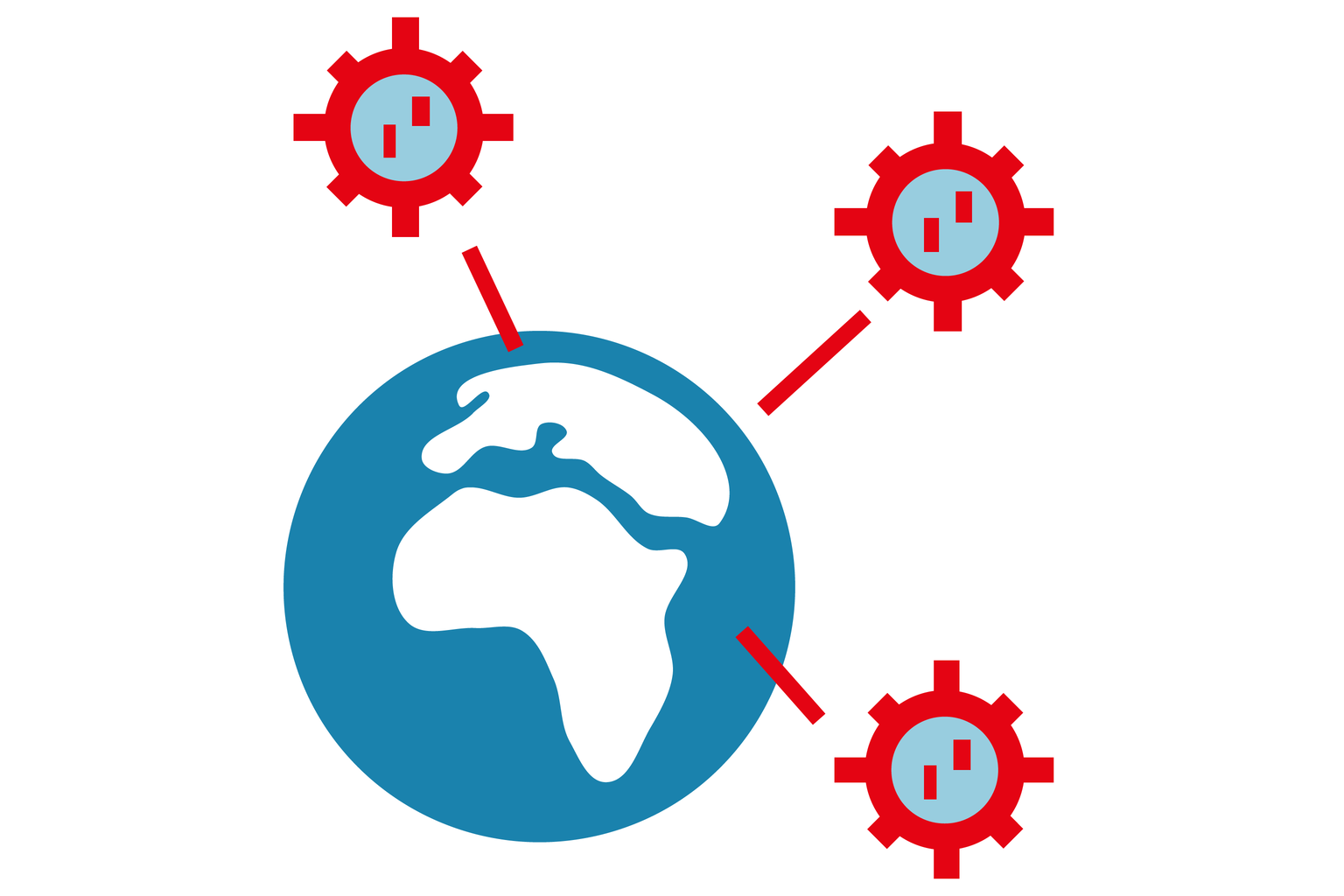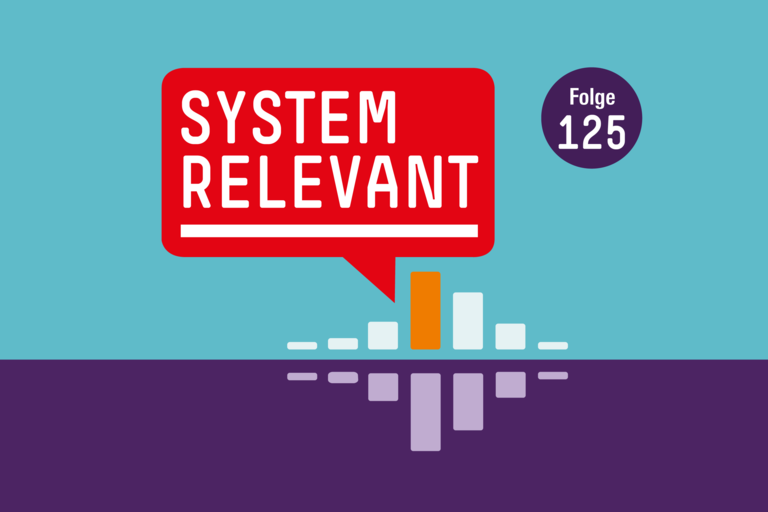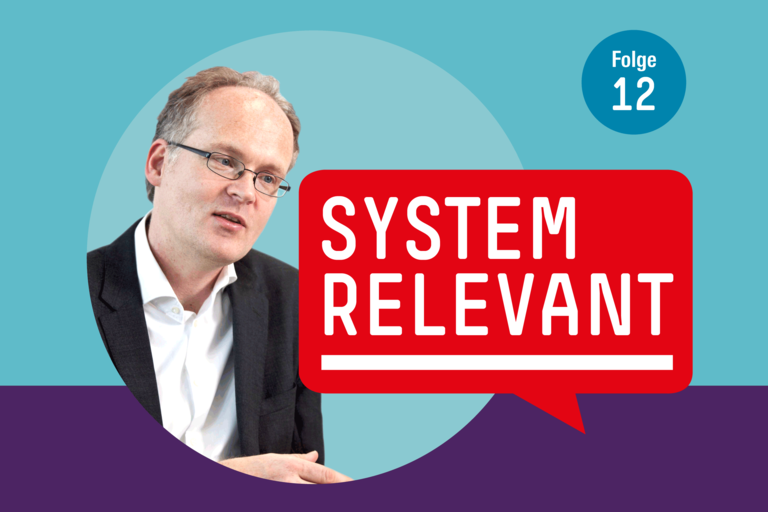
Quelle: HBS
24th FMM Online Conference - The Corona Crisis: Macroeconomic Implications and Policies for Sustainable Recovery
| Veranstalter: | Hans-Böckler-Stiftung (IMK) |
| Ort: | online |
| vom: | 28.10.2020, 13:45 Uhr |
| bis: | 30.10.2020 |
The global Corona pandemic took the world by surprise in 2020 and not only did the virus cause the change to an online format in this year’s conference, but it was also the main topic of economic analysis and discussion. As suggested by the title The Corona Crisis: Macroeconomic Implications and Policies for Sustainable Recovery the focus herby was twofold: For one analyzing the economic impact this major crisis had on the global economy and for another discussing the way forward to achieve economic prosperity and good jobs on the one hand and supporting the necessary decarbonization of our economies on the other. What impact did the crisis have on ever-widening inequality? What were the consequences for the Global South - in Latin America and China - as well as for the interconnected global value chains? How can monetary and fiscal policies aid economic recovery and foster the achievement of ambitious climate goals? Lastly, is the growth paradigm even viable within the planetary boundaries? These and many more topics were covered during the 3-day conference with over 500 attendees and many more live stream viewers.
On day one Jean-Pierre Vidal, Margit Schratzenstaller and Francesco Saraceno gave an overview on how the Corona crisis impacted the transformation of the European Union and discussed the means for and the necessity of higher public investment in the future. Frances Coppola, Scott Fullwiler and Karl Whelan went on to debate the drivers of inflation and to what extent the central banks can control it - which other macroeconomic drivers can be identified? And is inflation at the end of the day a political phenomenon controlled much more by credibility and expectations? Staying on the topic of central banks Adam Posen, Vitor Constancio and Peter Bofinger went on with a panel on the central banks in uncharted waters with interest rates close to zero, low inflation and quantitative easing policies already in place before the crisis. They also detailed guidelines for successful economic recovery in the here and now with strategies such as inflation targeting.
contact:
fmm[at]boeckler.de
programm (pdf)
Session 1: Recovery and transformation in the EU: how and what to finance
Chair: Andrew Watt, IMK Macroeconomic Policy Institute
The EU economic policy response to COVID-19: the July historic European Council deal and challenges ahead
Jean-Pierre Vidal, Cabinet European Council President
Own Resources for the EU – New Challenges and Options (pdf)
Margit Schratzenstaller, Austrian Institute of economic research (WIFO)
Public investment needs for a sustainable European recovery (pdf)
Francesco Saraceno, French Economic Observatory (OFCE)
Session 2: Theories of inflation: do central banks control the price level?
Chair: Andrea Terzi, Franklin University Switzerland
Inflation is always and everywhere a political phenomenon
Frances Coppola, Financial writer & commentator
Some Reflections on Prices, Inflation, and Macroeconomic Policy (pdf)
Scott Fullwiler, University of Missouri - Kansas City
Some Thoughts on “Do Central Banks Control the Price Level?
Karl Whelan, University College Dublin
Session 3: The Fed and the ECB in uncharted warters
Chair: Elisabeth Springler, FH BFI Wien
After IT, LFP and YCC is what I see for the FRB and ECB
Adam Posen, Peterson Institute for International Economics
Central Bank challenges and the revision of monetary frameworks(pdf)
Vitor Constancio, University of Lisbon
A true strategy for the ECB (pdf)
Peter Bofinger, University of Würzburg
The following day Steven Fazzari, Daniele Tavani and Bettina Kohlrausch elaborated on the pandemics impact on inequality. Hereby they did not only look at the rising inequality due to polarizing impacts on the labor market, but also on the repercussions for gender equality in the household. Steffen Lange, Peter Victor and Armon Rezai continued with the topic of degrowth. They defined the concept and went on to spell out and discuss the macroeconomics of no growth. In the evening Dani Rodrik, Joseph Stiglitz and Branko Milanovic went on with a panel on the big picture for the future of global capitalism. Dani Rodrik asked where the good jobs in the future could come from. Arguing that in the context of a dwindling middle class states and companies would need to form cooperative and learning structures, as they were very successful at creating good jobs in Scandinavian countries in the past. Joseph Stiglitz went on to agree arguing that market economies in which trust and altruism also guide economic decisions, and not pure self-interest, are better equipped for future challenges. Branko Milanovic continued and added by addressing the necessity of strengthening public education in deeply inequal societies, such as the USA, in order to achieve a more egalitarian and meritocratic capitalism.
Session 4: Into sharp relief – Corona and Inequality
Chair: Miriam Rehm, University Duisburg-Essen
Impact of COVID-19 on Inequality and the Macroeconomy: Considering Dual Causality (pdf)
Steven Fazzari, Washington University
Path Dependence, Pandemic, and Inequality (pdf)
Daniele Tavani, Colorado State University
Gender Inequality in the Corona Crisis (pdf)
Bettina Kohlrausch, Institute of economic and social research (WSI)
Session 5: Green growth or degrowth
Chair: Eckhard Hein, Berlin School of Economics and Law (HWR Berlin)
The macroeconomics of degrowth (pdf)
Steffen Lange, Institute for Ecological Economy Research (IÖW)
No growth by design - a macroeconomic environmental model for Canada (pdf)
Peter Victor, York University
The role of labor markets in ecological macroeconomics (pdf)
Armon Rezai, Vienna University of Economics and Business
Session 6: The future of global capitalism
Chair: Jan Priewe, IMK Macroeconomic Policy Institute
Where will the good jobs come from? (pdf)
Dani Rodrik, Harvard University
Is progressive capitalism/social democracy the answer?
Joseph Stiglitz, Colombia University New York
Global Capitalism (pdf)
Branko Milanovic, City University of New York
On day 3 the scope was widened to ask what the consequences of the pandemic were in the Global South. Alicia García-Herrero, Matthew C. Klein and Laike Yang began by discussing the impact, where the virus originated, in China and the challenges it posed for the economies medium term growth outlook. José Antonio Ocampo, Merike Blofield and Luiz Fernando de Paula went on with a discussion for South America, which was particularly hard hit by the crisis, stressing the importance of social policy to cushion the shock for the working-class population in the large informal sectors. In the final session Gary Gereffi, Gale Raj-Reichert and Mark Anner went on addressing global value chains and what effect the crisis had in the garment and electronic industries as well as lessons learned for increasing the resilience of these supply chains.
Session 7: China´s perspective after Corona
Chair: Heike Joebges, University of Applied Sciences (HTW Berlin)
Post-covid China: Medium term economic outlook (pdf)
Alicia García-Herrero, Hong Kong University of Science and Technology
The Consequences of China‘s Development Model and the Challenges of the Pandemic (pdf)
Matthew C. Klein, Barron’s
Impact of Covid-19 on China‘s foreign trade (pdf)
Laike Yang, East China Normal University, ECNU, Shanghai
Session 8: Corona and the crisis of Latin Amerika
Chair: Svenja Flechtner,University of Siegen, Barbara Fritz, Free University of Berlin
The search for a Latin American Consensus 2020 (pdf)
José Antonio Ocampo, Colombia University New York
Video (youtube)
The COVID crisis and social protection responses in Latin America (pdf)
Merike Blofield, German Institute of Global and Area Studies
Video (youtube)
Corona crisis and economic policies of the Bolsonaro government (pdf)
Luiz Fernando de Paula, Institute of Economics of the Federal University of Rio de Janeiro (IE/UERJ)
Video (youtube)
Session 9: Global Value Chains after Corona
Chair: Hansjörg Herr, Berlin School of Economics and Law (HWR Berlin)
What do we learn from COVID-19 about the resilience of global value chains for medical supplies (1) (pdf)?
(pdf)_(2)
Gary Gereffi, Duke University
Resilience, resistance, and recovery? Restructuring the electronics industry global value chains post Covid-19.(pdf)
Gale Raj-Reichert, WZB Berlin Social Science Center (WZB)
The Impact of Covid-19 on Manufacturers and Workers at the Bottom of Garment Global Supply Chains (pdf)
Mark Anner, PennState College

